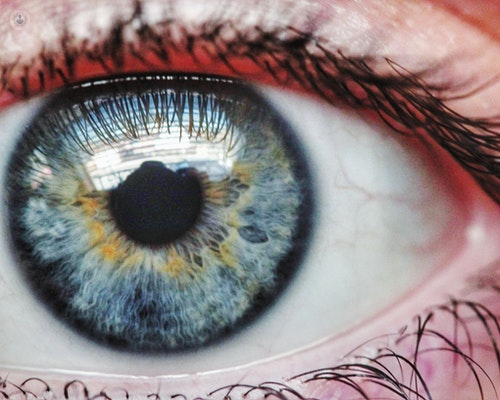Retinal detachment: warning signs, causes, treatments and more
Autore:Retinal detachment is a rare occurrence that affects around 0.3 per cent of people at some point in their lives. Miss Sengal Nadarajah, a vastly experienced Consultant Ophthalmologist, provides further information about this issue.

What is retinal detachment?
Retinal detachment is a condition where the retina (the light-sensitive layer of tissue in the back of the eye) comes away from its normal position. It is most common in people aged between 50 and 70 years old where the vitreous (gel-like fluid in the centre of the eye) undergoes natural ageing changes and separates from the retina in a process called posterior vitreous detachment (PVD). About 10 to 15 per cent of people with PVD develop a retinal tear or hole, which, if left untreated may lead to a retinal detachment. A retinal tear or detachment can be successfully treated if diagnosed early.
Why does retinal detachment need immediate attention?
Retinal detachment is an eye emergency as the chance of permanent vision loss increases with the length of time it is left untreated.
What are the main warning signs of retinal detachment?
Retinal detachment is painless and exhibits one or more of the following four main symptoms:
- floaters – tiny spots or commonly a large cobweb-like floater that drift through your visual field
- flashing lights - usually like brief streaks of light - in your peripheral vision
- blurred vision
- a curtain-like dark shadow over your visual field
What are the risk factors for retinal detachment?
- age - more common in people between 50 and 70 years old
- myopia (short-sightedness)
- retinal detachment in the other eye
- family history of retinal detachment
- previous eye surgery (e.g. cataract surgery)
- trauma directly to the eye
- previous eye disease or disorders including retinoschisis, uveitis or thinning of the peripheral retina (lattice degeneration)
What is the treatment?
Retinal tear or hole
This can be treated (to prevent fluid passing through and causing retinal detachment) by two methods, as follows:
- laser surgery (photocoagulation) - A targeted beam is used to cause very small burns around the retinal tear or hole. These small burns act to weld the retina to the underlying tissue preventing a detachment.
- freeze treatment (cryopexy) - very low temperature is applied with a probe to freeze the area of the retina around the retinal tear or hole from the outside of the eye. This causes scarring which helps to secure the retina to the eyewall.
Retinal detachment
This can be treated by three main types of surgery, namely:
- Vitrectomy: This is the most common type of surgery used for retinal detachment in the UK. The vitreous gel in the eye is removed and replaced with a gas bubble, and the retinal tear or hole is sealed with laser or cryopexy. The gas bubble resolves over a few weeks and is replaced by aqueous fluid (natural fluid made by the eye).
- Scleral buckle: This involves attaching a very small piece of silicone sponge or harder plastic on the outside of the eye (sclera) corresponding to the location of the retinal tear or hole and using laser or cryotherapy seal the retinal tear or hole.
- Pneumatic retinopexy: In the case of a small and uncomplicated retinal detachment, a gas bubble can be injected into the vitreous of the eye, without removing any of the vitreous, and again sealing the retinal tear or hole with laser or cryopexy.
Miss Nadarajah is a Consultant Ophthalmologist in Surrey and Sussex Healthcare Trust. You can receive her expert advice and/or treatment by visiting her Top Doctors profile and requesting an appointment.


